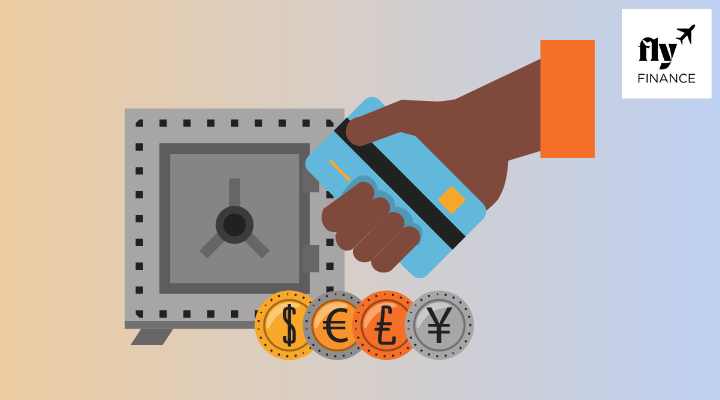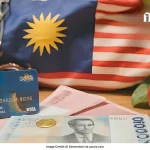International business, education, and travel are increasingly frequent in today’s connected globe. These possibilities raise the demand for quick and safe cross-border money transmission systems. Wire transfers and currency cards are two common solutions that come to mind when faced with this issue. Both have particular functions and distinct benefits and drawbacks. In order to assist you in making an informed choice when it comes to international money transfers, we will compare wire transfer vs forex cards for sending money internationally.
Table of contents
Difference between Wire Transfers and Forex Cards
There are various differences between wire transfers and forex cards which are important to know for students who are interested in international money transfer. Wire transfers are ideal for sending large sums of money internationally, though they often come with higher fees. Whereas Forex cards provide a convenient way to manage foreign currency expenses while traveling abroad.
Here’s a comparison table between Wire Transfers and Forex Cards:
| Feature | Wire Transfers | Forex Cards |
|---|---|---|
| Definition | Electronic transfer of funds between banks across borders. | Prepaid card loaded with foreign currency for international spending. |
| Usage | Sending money internationally, usually for business, education, or personal needs. | Used for making purchases or withdrawals in foreign currency while traveling. |
| Speed | 1–5 business days. | Instant usage after activation. |
| Exchange Rates | Bank rates, often less favorable than market rates. | Locked in at the time of loading, often competitive compared to wire transfers. |
| Fees | High fees, including service charges, intermediary bank fees, and conversion costs. | Minimal or fixed fees, generally lower than wire transfers. |
| Convenience | Requires bank details of the recipient. | Easy to carry and use like a debit card. |
| Security | Secure if done via trusted banking channels. | PIN-protected; offers security features like locking the card if lost. |
| Withdrawal | Directly deposits into the recipient’s bank account. | Allows ATM withdrawals in the local currency of the destination country. |
| Best For | Large amounts, long-term financial transfers. | Travelers requiring quick and convenient access to foreign currency. |
| Limitations | Time-consuming; may involve multiple intermediaries. | Preloading is required; additional reloading fees may apply. |
Must Read: Tips To Save Money On Foreign Exchange While Studying Abroad
What are Wire Transfers?
A wire transfer is a way to send money electronically from one person or organization to another. You can transfer money through a wire transfer from one bank account to another.
The safest and most secure way to transfer significant amounts of money (usually a few thousand dollars) is by wire transfer.
Depending on the currency and transfer amount, a small transfer charge must be paid to the business providing the wire transfer, often Forex Companies or banks.
What are Forex Cards?
It is a prepaid card that functions similarly to a standard debit or credit card and can have numerous currencies loaded onto it.
Any amount can be loaded onto it, and you can add to it as often as you need to for your needs or convenience. You can easily keep track of your Forex card‘s expenses online.
It is equally simple for parents to keep track of when their child is running low on money and to refill it as required.
Relevant Read: List Of International Money Transfer Companies
Wire Transfer vs Forex Card: Comparison
The ideal option of choosing between a wire transfer vs Forex card will depend on your particular needs and circumstances because both wire transfers and Forex cards have advantages and disadvantages.
Flexible Uses
Wire transfers can be appropriate for you if you need a sizable amount of money transmitted fast and are willing to pay higher fees. On the other hand, forex cards present an appealing alternative if you’re looking for convenience, better exchange rates, and cheaper fees for smaller transactions.
Also, Read: How To Transfer Money Internationally Between Banks?
Money Transfers
For many years, wire transfers have been a mainstay of international money transfers. They entail sending money electronically between bank accounts, frequently across borders and in different currencies.
Whereas, Foreign exchange cards, commonly referred to as travel cards or currency cards, are a relatively new and gaining popularity substitute for sending money abroad.
Exchange Rates
During wire transfers, banks typically provide exchange rates with a markup when moving funds between different currencies. This may lead to rates that are less advantageous than the market rate, which could result in transfer losses.
Whereas, when compared forex cards frequently offer superior exchange rates. Users can avoid currency swings and save potential losses because the rates are fixed at the time the card is loaded.
Moreover, many forex card providers provide issuance and reloading costs that are low or even free. While there may be a few modest fees associated with ATM withdrawals, they are typically less expensive than wire transfers for smaller transactions.
Security
Because banks and other reputable financial institutions are involved, wire transfers are typically regarded as secure. However, incorrect recipient information can cause issues and delays.
Whereas, Forex cards have PIN security and the choice to replace or block the card in the event of loss or theft. Since they are not directly connected to your bank account, there is less chance that private financial data would be revealed.
Must Read: Forex Card Vs Credit Card: A Detailed Comparison With Pros And Cons
Convenience
A bank-to-bank transaction is normally involved in wire transfers, and the procedure may take a few business days to complete. Longer wait periods can result from delays brought on by the involvement of intermediate banks in the transfer procedure.
Whereas, it’s simple to get and load numerous currencies onto Forex cards. They are a practical choice for tourists as they are recognized by the majority of shops, ATMs, and internet services globally.
Fees
Both the sending and receiving institutions frequently charge significant fees for wire transactions. This makes it an expensive alternative for smaller transfers because the fees might vary depending on the banks involved and the amount being moved.
Whereas, forex cards make it possible for you to designate particular sums to various currencies, making it easier to plan a budget for your needs when travelling or studying abroad.
Due to their flexibility, security, and cost-effectiveness, forex cards are fast becoming the preferred option for regular travellers, students studying abroad, and anyone conducting foreign business.
Must Read: Multi-Currency Forex Card: Charges, Benefits, Purpose, Top Banks
FAQs
Ans. A student forex card is a foreign exchange or forex card that enables students to cover their expenses without being concerned about money or currency concerns. This card is ideal for you if you are a student thinking of studying abroad.
Ans. When travelling abroad, using a Forex card has lower or no transaction fees than using a debit or credit card, and its conversion fees are less than withdrawing cash. Forex cards are useful for many international travellers when travelling abroad.
Ans. Due to their improved security measures, they are safe and secure to use abroad. They are widely accepted, have fixed exchange rates, are simple to use, support multiple currencies, and have endorsed protection, making them a favourite among regular foreign travellers.





























